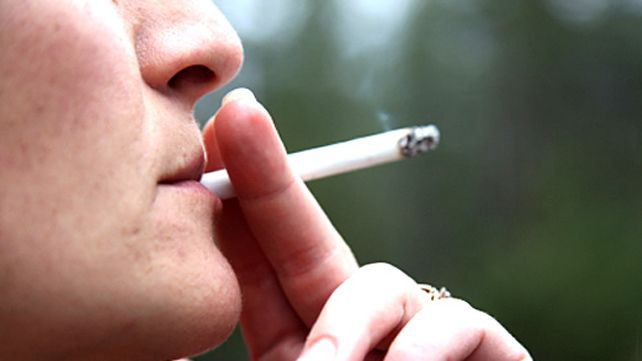How To Quit Smoking: You'll Stop If You Get Paid, Study Says

The dangers of smoking have become more and more apparent through research in the last 60 years. While these studies have assisted in lowering the overall smoking rate, there are still certain groups who smoke. In the United States, more than 16 million people are living with a disease caused by smoking and nearly 6 million people die worldwide because of smoking, according to the Center for Disease Control and Prevention. A new study, however, suggests that there may be a new way to help people kick the habit … pay them.
There have been numerous methods developed to help prevent smoking or assist those with smoking addictions. Nicotine patches, nicotine gum, tea and medication are just a few examples of preventative products. All of these, however, may not be as beneficial as using a financial incentive.
According to Business Insider, financial incentives for those struggling with addictions took off in the early 1990’s. A study done on 40 cocaine dependant adults showed that those given a financial incentive to quit using were more successful in abstaining than those who weren’t.
The University of Vermont’s Center on Behavior and Health conducted several trials on the use of financial incentives for pregnant women who smoke. The participants received vouchers for retail items if they turned in urine samples proving they hadn’t smoked in the past week. The first voucher successful participants received was for $6.25. The residents would continue to turn in urine samples on a weekly basis and the longer they were tested to be clean, the more money they received each week. The voucher amounts maxed out at $45.
If any of the participants turned in a urine sample that showed they had been smoking, their voucher amount would reset to $6.25 and they would have to work their way back up to $45. In an effort to inspire women to continue fighting, the voucher amount would go back up to their previous amount before the relapse after two weeks of being clean.
The incentive period lasted from the day the women entered through 12 weeks postpartum.
The study proved to be successful. 34 percent of women who were given the opportunity to receive incentives stopped smoking all the way until they were 12 weeks postpartum. Only 7 percent of women who were not given financial incentives were able to do so. Even 14 percent of women who received incentives were still not smoking 12 weeks after the financial incentives ended. Only 1 percent of women who did not receive incentives were not smoking 12 weeks after the program finished.
Women who chose to refrain from smoking during the entire 9 month period could earn up to $1,180. The average earning throughout all of the women, however, was $450. Those who quit smoking during this time also proved to have healthier pregnancies and struggled less with postpartum depression, the study said.
© Copyright IBTimes 2024. All rights reserved.





















